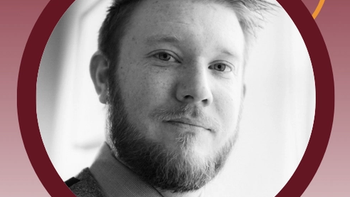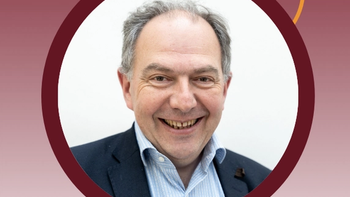
Telling It Like It Is In Sustainable Healthcare
Hans-Georg Eichler, the Senior Medical Officer at the European Medicines Agency, addresses adaptive pathways as a way to "ensure sustainability of the innovation system and the healthcare systems."
With characteristic clarity, the godfather of adaptive pathways has again put his finger on the nub of the dilemma currently faced by healthcare systems – and with a delightfully simple and concrete illustration.
Hans-Georg Eichler, the Senior Medical Officer at the European Medicines Agency, will be one of many distinguished speakers at a plethora of high-level meetings on European pharmaceutical policy that are being hosted in Amsterdam
Cutting through all of that, Eichler will present a slide introducing: "Jane, late fifties, recent diagnosis of advanced cancer, life expectancy: ~2 years; and John, late fifties, in good health, family history of cancer, life expectancy: ~20 years". He will then go on to pose the question: "Should our healthcare systems cater for the needs of only Jane? only John? or Jane and John?" in a scenario where "there is a promising treatment out there; but it’s still early days …”
As a mere journalist I will not presume to guess exactly how Eichler will develop the argument in his speech, entitled: "Earlier access: is it worth it?" But by whittling down the mounds of concept papers and years of theorising that his chosen subject has generated, and by presenting a simple but representative situation, he has exposed clearly the essence of the challenge. In a changing world full of uncertainties, what are the best routes that health authorities can take to make rational choices among an overwhelming range of demands and options?
His directness is matched by the similarly trenchant exposition of a dilemma by another familiar figure on the European healthcare stage, Belgian MEP Philippe De Backer, who over recent weeks has repeatedly highlighted what he terms "the elephant in the room of discussions on how to keep healthcare sustainable." His approach is economic as much as therapeutic, but his underlying question is the same: in a world of finite resources and infinite demand for healthcare, where choices have to be made, what are the best criteria for making those choices. His message is not entirely fashionable in the Brussels milieu, where the norm is for patients and healthcare campaigners to constantly urge increased provision without any deep reflection on funding, and where few policymakers see any advantage in standing out with a politically sensitive message that somehow, somewhere, there must be some limits.
They both go further than questions, of course. For the record, Eichler's subsequent slides spell out the nature of MAPPs, the so-called adaptive pathways initiative now under development in Europe and beyond, which Eichler summarizes as "An iterative, life-span approach to learning and on-market access." He goes on to identify some of the hallmarks of MAPPs – notably its emphasis on its on-market evidence generation and the use of real-world data to inform follow-on licensing and reimbursement decisions, and to manage risk, as well as its precondition of collaboration among pharmaceutical companies, patients, regulators, health technology assessment bodies, payers, and health care providers. His final point is to "ensure sustainability of the innovation system and the healthcare systems."
And DeBacker has set out his views on the need for radical thinking: "The most important thing is not to try to fix the broken systems, but to think out of the box and come up with new ideas," he said in the European Parliament in February. He urged that new ideas should move away from the national models in which these systems developed and toward an EU approach: "There is a lot to do at EU level – focus change by using European approaches to health technology assessment to deliver health care better across the EU."
At a time when the UK is looking more and more like it is getting ready to sleepwalk out of the EU, when mutterings are growing ever louder in Denmark, the Netherlands, Hungary and Slovakia about EU obligations, and after Greece has looked more and more over recent years as if it was going to have its membership downgraded, there could be no better time to bring some focused thinking to bear on how the EU can work more effectively together – and above all in healthcare, an area that is vital, literally, for its citizens.
Newsletter
Stay current in clinical research with Applied Clinical Trials, providing expert insights, regulatory updates, and practical strategies for successful clinical trial design and execution.




